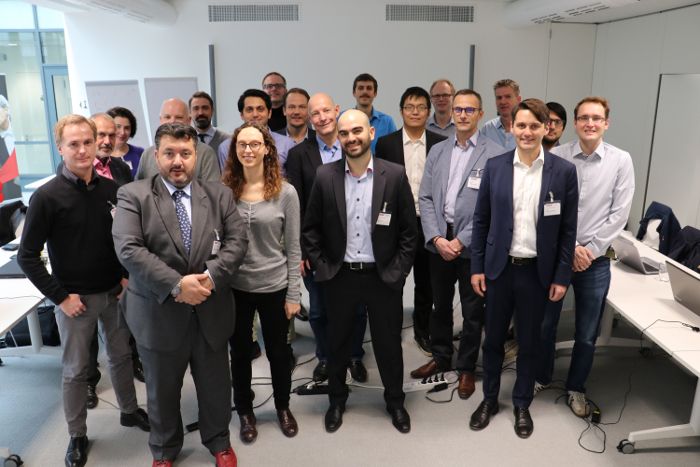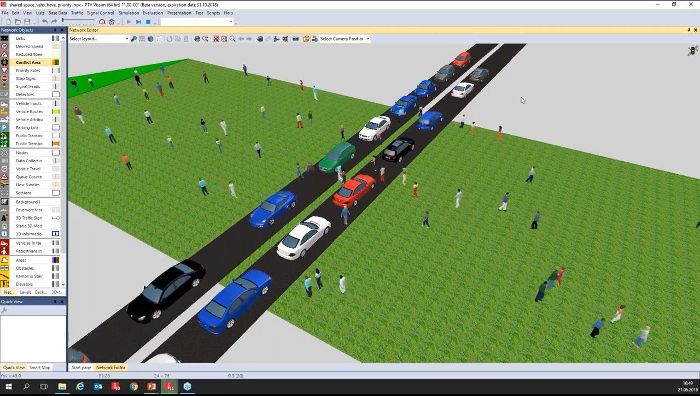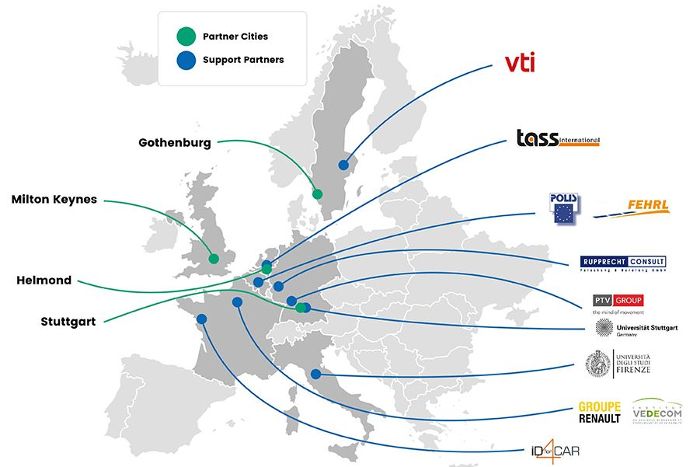German transportation software developer PTV Group has revealed the first major success of the European CoEXist project, with the creation of a modeling system that can simulate the interaction between automated and conventional vehicles.
Funded by the European Commission’s (EC) Horizon 2020 framework program, the three-year US$4m (€3.5m) CoEXist research project focuses on the interaction between semi-automated and conventional vehicles in the transition period to the deployment of fully autonomous vehicle fleets. The project is also studying how this coexistence between automated and conventional vehicles can be managed, and what future transportation models might look like. After 18 months of work, the multidisciplinary team of 15 project partners has reported the achievement of one of its main objectives, with completion of the transportation modeling software, which is now “automated vehicle-ready”.

The PTV research team worked closely with partners from French auto maker Renault, the Vedecom institute (France), TASS International (Belgium) and the University of Stuttgart (Germany), supported by the Swedish National Road and Transport Research Institute, the city of Helmond in the Netherlands, and the University of Florence (Italy). Due to this multinational cooperation, simulations were run, enabled by the connection of the control logic of autonomous vehicles from Vedecom, TASS International’s PreScan software, and PTV’s Vissim microscopic simulation software.
Field data was also collected on the test track in the city of Helmond, where TASS International organized a three-day data collection session in a ‘real world’ traffic environment. In addition, the data and the car-following behavior of automated vehicles (AV) were analyzed. Based on these results, new features were released in the PTV simulation software and the recommended values were published. The results were also used by the University of Stuttgart to develop macroscopic modeling scripts.

Now that the modeling software is AV-ready, the four cities involved in the CoEXist project, Helmond, Stuttgart, Gothenburg (Sweden) and Milton Keynes (UK), will model use cases using the Vissim microscopic simulation software and PTV’s Visum macroscopic modeling software. In the next steps of the project, the CoEXist team will tackle the automation-readiness of road infrastructure and highway authorities to prepare for the transition toward a shared road network. Other project partners involved in the program include: Rupprecht Consult (Germany), the Belgium-based Polis network (Cities and Regions for Transport Innovation), FEHRL (Forum of European National Highway Research Laboratories -Belgium), and iD4Car (Germany).
“CoEXist is an outstanding research project focusing on an important future topic,” noted Dr Christoph Walther, head of global research at the PTV Group. “With this important milestone, we have paved the way to AV-modeling.





